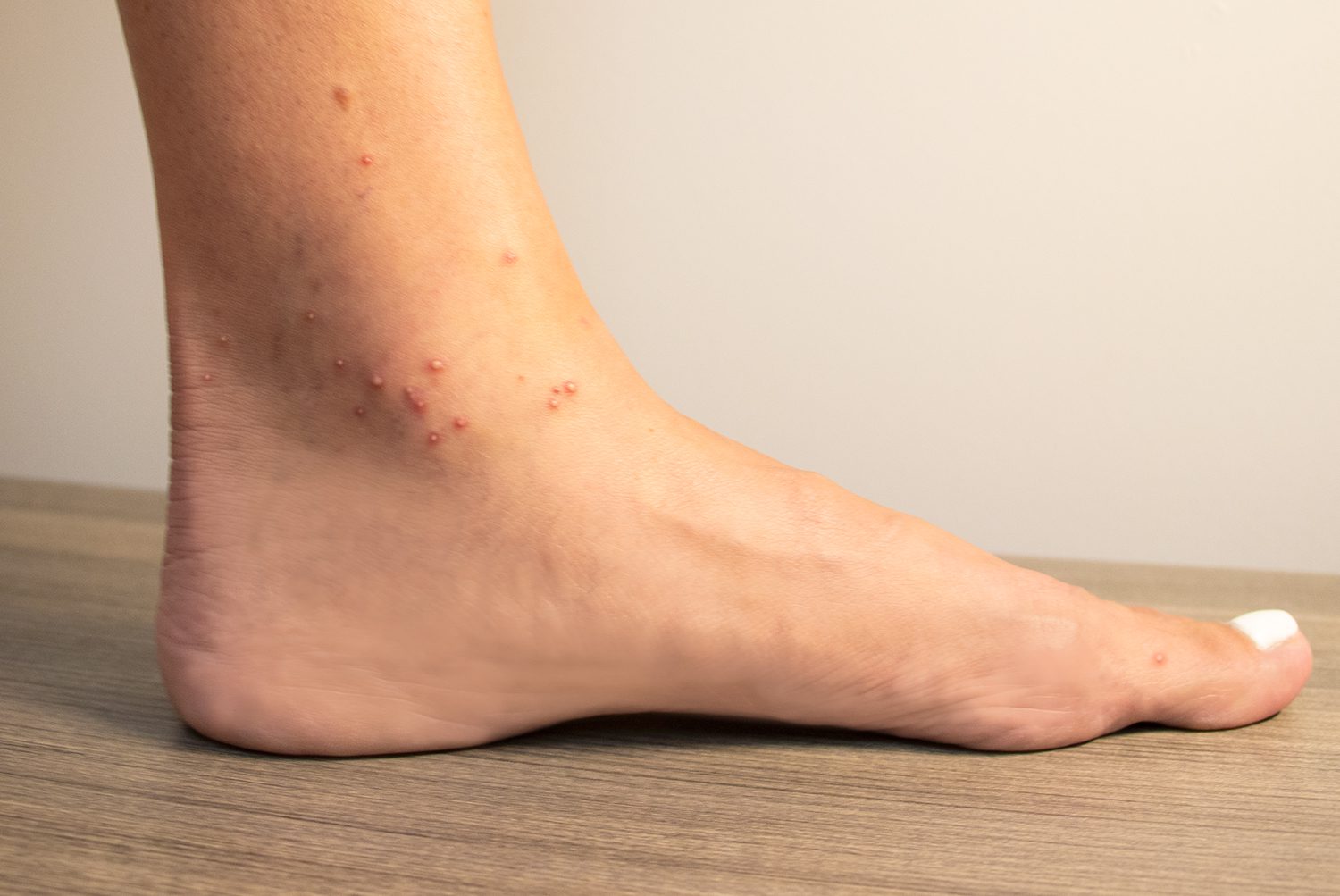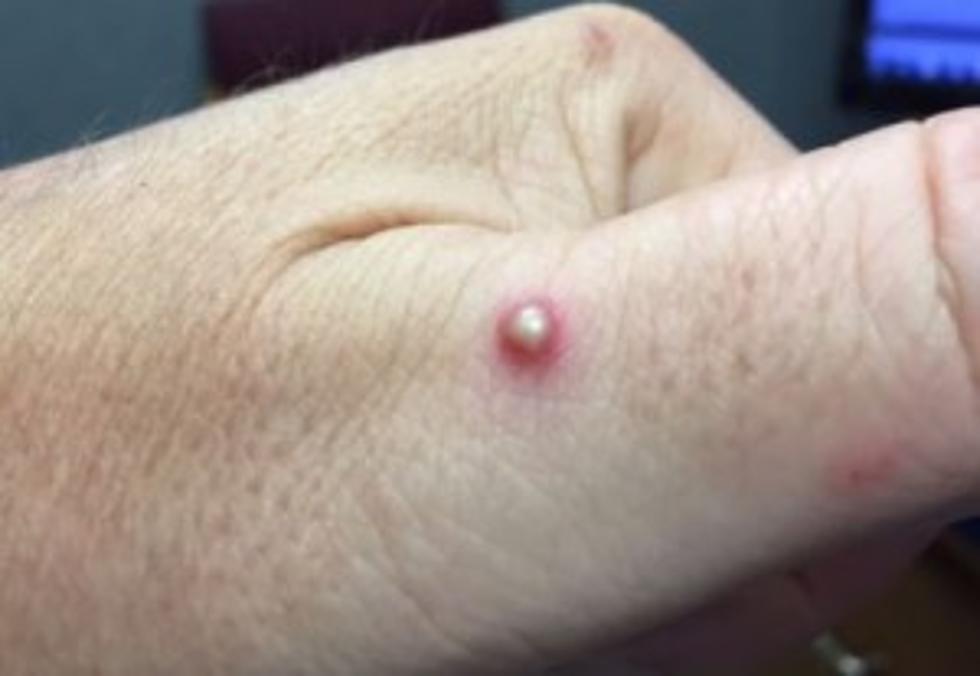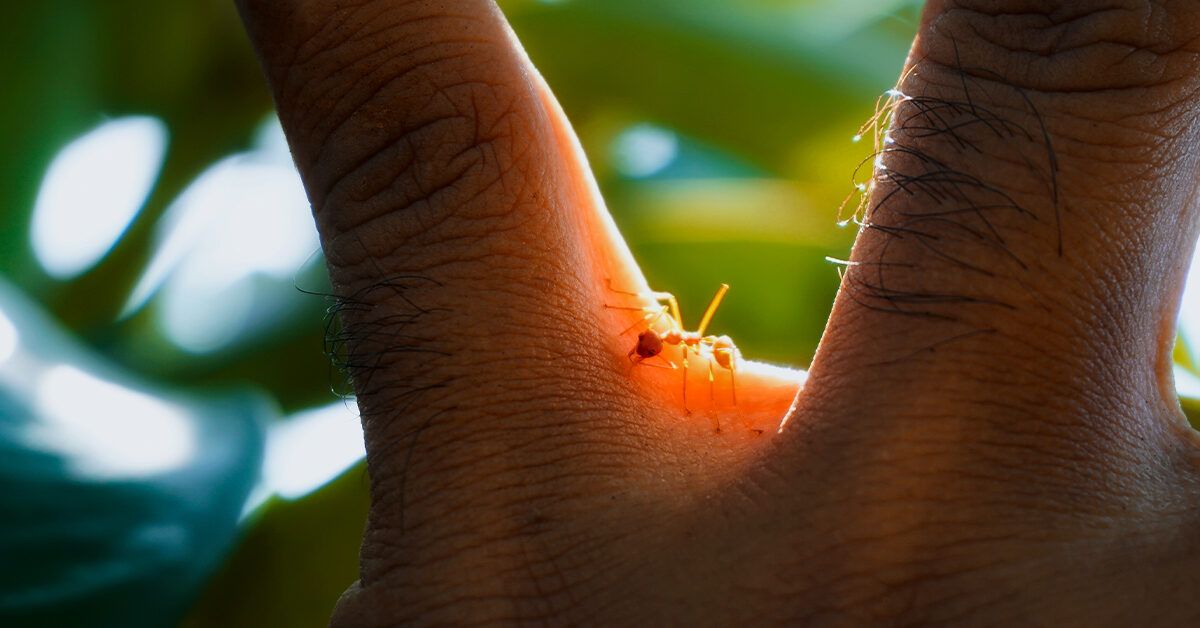You should not pop ant bites because doing so can open the blisters and lead to infection. If you accidentally pop a blister, it is important to apply an antibiotic ointment to prevent infection.
Leaving ant bites alone will usually allow them to dry up within four days. Ant bites can be bothersome and uncomfortable, but knowing how to properly care for them is essential for preventing further complications. One common question that arises when dealing with ant bites is whether or not you should pop them.
Popping ant bites can be tempting, especially if there is a blister present, but it is important to understand the potential risks involved. We will explore whether or not you are supposed to pop ant bites and the reasons behind this recommendation. We will also provide some tips on how to properly care for ant bites to promote healing and prevent infection. So, let’s dive in and learn more about the best approach for dealing with ant bites.

Credit: www.conwaymedicalcenter.com
What Happens If You Pop Ant Bites?
Ant bites can sometimes result in blisters, and the temptation to pop them may arise. However, it’s crucial to understand the consequences of popping ant bites before taking any action.
Risks Of Popping Blisters
- Popping ant bites can introduce bacteria and germs, increasing the risk of infection.
- Infections from popped blisters can lead to complications that may require medical attention.
- Scarring and delayed healing are common outcomes of popping ant bite blisters.
Preventing Infection
- Avoid popping ant bite blisters to prevent infection and expedite healing.
- If a blister accidentally pops, clean the area thoroughly and apply antibiotic ointment.
- Keep the popped blister clean and covered to reduce the risk of infection.

Credit: www.texasmonthly.com
Best Practices For Treating Ant Bites
When dealing with ant bites, it’s important to resist the urge to pop them, as this can lead to infection. Instead, it’s best to wash the affected area with soap and water and apply an antibiotic ointment if the blister accidentally gets popped.
Using a cold compress and antihistamine cream can help alleviate the discomfort and reduce swelling.
Avoid Popping Blisters
When it comes to treating ant bites, one of the best practices is to avoid popping any blisters that may develop. It can be tempting to pop a blister to relieve the discomfort, but doing so can actually increase the risk of infection. Popping a blister can introduce bacteria and germs into the open wound, which can lead to complications and delay the healing process.
Use Of Antibiotic Ointment
If you accidentally pop a blister or have an open ant bite, it’s important to take steps to prevent infection. One effective method is to apply an antibiotic ointment. Antibiotic ointments, such as Neosporin, can help kill bacteria and protect the wound from potential infections. It’s recommended to apply the ointment up to three times a day for one to two days to promote healing and reduce the risk of complications.
In conclusion, when it comes to treating ant bites, it is best to avoid popping any blisters that may form and to use antibiotic ointment to prevent infection. These best practices can help promote faster healing and minimize the risk of complications associated with ant bites. Remember to always consult with a healthcare professional if you experience severe symptoms or if the bite shows signs of infection.
How To Respond To Fire Ant Bites
To treat ant bites, avoid popping blisters to prevent infection. Wash with soap, apply antibiotic ointment, and use cold compresses to reduce swelling and pain. Practice first aid by covering minor bites with bandages and avoid scratching to ensure faster healing.
Understanding Fire Ant Venom
Fire ant bites can be quite painful and leave behind itchy blisters or pustules on the skin. These blisters are actually the body’s natural response to the venom injected by the fire ants. Understanding the venom and its effects can help you respond appropriately to fire ant bites.
Seeking Medical Attention
If you are allergic to fire ant venom or experience severe symptoms such as difficulty breathing, chest tightness, dizziness, or swelling of the face or throat, it is crucial to seek immediate medical attention. Allergic reactions to fire ant bites can be life-threatening and require prompt medical intervention.
Even if you are not allergic, it is always a good idea to consult a healthcare professional if you experience intense pain, extensive swelling, signs of infection, or if the blisters do not improve within a few days. A healthcare professional can provide you with appropriate treatment options and guidance to ensure speedy recovery.
For mild to moderate fire ant bites, here are some steps you can take to alleviate discomfort and promote healing:
Step 1: Clean the Affected Area
Before applying any treatment, make sure to clean the affected area with mild soap and water. This will help remove any dirt or debris and minimize the risk of infection.
Step 2: Apply Cold Compresses
Applying cold compresses or ice packs to the bites can help reduce pain and swelling. Use a clean cloth or towel wrapped around the ice pack to protect your skin from direct contact with the cold object.
Step 3: Use Over-the-Counter Remedies
Over-the-counter remedies such as hydrocortisone cream or calamine lotion can help relieve itching and reduce inflammation. Apply these creams or lotions as directed on the packaging.
Step 4: Take Oral Antihistamines
To further alleviate itching and reduce the body’s allergic response, you may consider taking oral antihistamines. Always follow the recommended dosage instructions and consult a healthcare professional if you have any concerns.
Step 5: Avoid Scratching or Popping Blisters
Although it may be tempting, it is important to resist the urge to scratch or pop the blisters caused by fire ant bites. Scratching can break the skin, leading to a higher risk of infection. Instead, allow the blisters to heal naturally and provide protection by covering them with a sterile bandage if necessary.
By following these steps and seeking medical attention when necessary, you can effectively respond to fire ant bites and promote healing. Remember, prevention is always better than cure, so take precautions to avoid fire ant-infested areas and wear protective clothing when necessary.
Debunking Common Myths About Ant Bite Treatment
Ant bites should not be popped, as this can open the blisters and lead to infection. It is best to leave the bites alone and they will usually heal within four days. If a blister accidentally pops, applying antibiotic ointment can help prevent infection.
Myth: Popping Blisters Helps
Ant bites may develop into blisters, making it tempting to pop them. However, popping blisters can introduce bacteria, leading to infections. It’s best to avoid this practice.
Myth: Home Remedies Are Sufficient
While home remedies like applying ice packs or hydrocortisone cream can provide relief, severe ant bites may require professional medical attention. Don’t solely rely on home remedies for all ant bites.
When To Seek Professional Medical Advice
Signs Of Infection
Signs of infection from ant bites may include increased redness, swelling, warmth, and pus or fluid drainage from the bite site. If you notice any of these signs, seek medical attention promptly to prevent the spread of infection.
Allergic Reactions
Allergic reactions to ant bites can cause symptoms such as difficulty breathing, swelling of the face, throat, or tongue, dizziness, and a rapid pulse. If you experience any of these symptoms, it is crucial to seek immediate medical help as this could be indicative of a severe allergic reaction.

Credit: 973thedawg.com
Frequently Asked Questions Of Are You Supposed To Pop Ant Bites
Should You Pop The Whitehead From An Ant Bite?
It is not recommended to pop the Whitehead from an ant bite. Popping the blister can open it and cause infection. It is best to leave the ant bites alone and they will usually dry up in about four days.
If the blister does accidentally pop, apply antibiotic ointment to prevent infection.
Should You Squeeze The Pus Out Of An Ant Bite?
If you accidentally pop an ant bite blister, apply antibiotic ointment up to 3 times a day for 1-2 days to prevent infection. Focus on keeping the area clean and avoid squeezing out pus. Let the bite dry up naturally.
What Is The Fastest Way To Heal Ant Bites?
To heal ant bites quickly, don’t pop the blisters to avoid infection. Apply antibiotic ointment if popped. Use hydrocortisone cream and cold compresses to reduce itchiness and swelling. Wash bites with soap and water, cover with a bandage if needed, and apply a cold compress for pain relief.
Should I Bandage Ant Bites?
You should not bandage ant bites. If you accidentally pop the blister, apply antibiotic ointment to prevent infection. Home remedies include washing the area, applying a cold compress, and taking oral antihistamines or using hydrocortisone cream for itchiness. Avoid popping blisters as it may lead to infection.
Conclusion
After exploring the topic of popping ant bites, remember to prioritize caution over impulse. It’s crucial to resist the urge to pop blisters as it can lead to potential infections. Instead, opt for proper antiseptic care to aid in a swifter recovery process.
Your skin’s health is the ultimate priority.

I’m MD Tanvir, and I bring years of expertise gained from working closely with pest control companies to the forefront. My journey in the industry has inspired me to launch Bug Battler, a platform aimed at equipping people with the know-how to combat pests autonomously. Through Bug Battler, I aim to empower individuals with practical insights to tackle pest infestations effectively.

